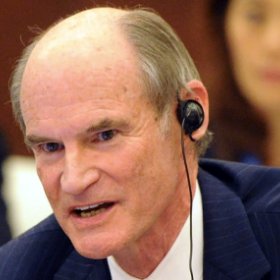
Top Priority for Europe’s Cyber Cops: Preventing Terrorist Recruitment
Senior Vice President at EWI, Bruce McConnell writes on the shift in focus at an annual conference on 'Cooperation against Cybercrime,' held at the Council of Europe in Strasbourg, France.
Every June in Strasbourg, France, 300 police, prosecutors, judges, diplomats, attorneys, and engineers from around the world meet to find better ways to combat cyber-enabled crime. I call it “cyber-enabled” because there is really very little “cybercrime.” Most cybercrimes are just regular crimes—theft, fraud, destruction of property—renamed and empowered by the latest electronic tools of the Internet. It’s still the safest way to rob a bank.
But this year, the talk had shifted to a new dimension, criminal speech. How to prevent terrorist recruitment and violence facilitated by the Internet is now Topic A among cyber cops, especially in Europe. In the shadow of Snowden’s revelations, it’s a tough conversation. How much should the police be allowed to watch the people? Where should we draw the lines between political speech and incitement to violence and propaganda? What responsibilities do powerful platforms like Facebook play?
Today, European legislatures are moving to pass invasive surveillance laws, which, history teaches, will be abused. It took the U.S. over 10 years to temper the most extreme provisions of the Patriot Act. Europe, the cradle of human rights, must now find its own middle ground, while staying true to its values.

